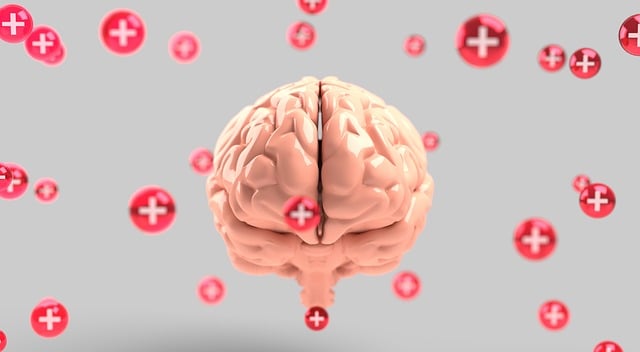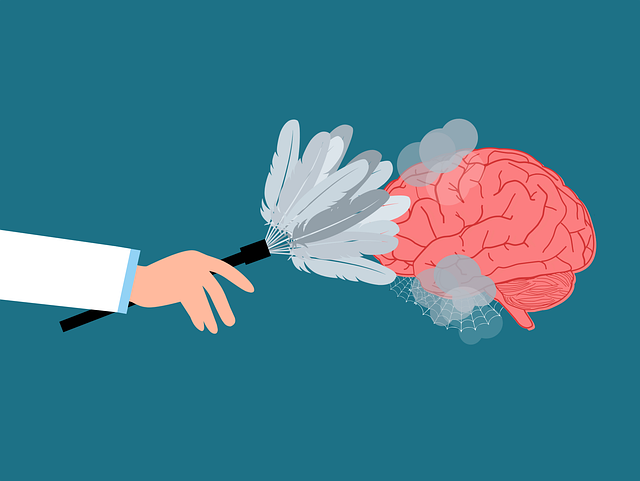Centennial Russian Speaking Therapy offers critical Crisis Intervention Team (CIT) training, empowering professionals with evidence-based de-escalation techniques and mindfulness meditation skills. This program, tailored for Russian-speaking communities, addresses cultural nuances and promotes mental health stigma reduction. Through interactive workshops, role-playing, and emotional intelligence development, CIT members gain lifesaving skills to handle high-risk scenarios effectively while fostering community compassion and long-term healthcare provider resilience.
In today’s complex social landscape, crisis intervention teams (CITs) stand as vital resources in emergency situations. These specialized groups provide immediate support, minimizing potential harm. The Centennial Russian-Speaking Therapy Team exemplifies cultural sensitivity and expertise, demonstrating the importance of diverse, linguistically competent CITs. This article explores crisis intervention training programs, delving into essential components and benefits, including real-life success stories from the team. By equipping individuals with lifesaving skills, these programs foster a more responsive and inclusive community.
- Understanding Crisis Intervention Teams: A Vital Resource in Emergency Situations
- The Role of the Centennial Russian-Speaking Therapy Team: Cultural Sensitivity and Expertise
- Training Programs: Equipping Individuals with Lifesaving Skills
- Essential Components of Effective Crisis Intervention Training
- Benefits and Impact: Real Stories of Success and Change
Understanding Crisis Intervention Teams: A Vital Resource in Emergency Situations

Crisis Intervention Teams (CITs) are a vital resource in emergency situations, providing immediate support and guidance to individuals facing mental health crises. These specialized teams, often composed of trained professionals from various backgrounds, including therapists and first responders, are equipped to de-escalate high-risk scenarios and offer evidence-based interventions. At Centennial Russian Speaking Therapy, we recognize the critical role CITs play in our communities, especially given the growing awareness of mental illness stigma reduction efforts and the need for emotional well-being promotion techniques.
Through comprehensive training programs, CIT members gain invaluable skills to navigate complex situations and provide effective care. This includes learning mindfulness meditation practices that can help individuals manage intense emotions during a crisis. By integrating these strategies into their repertoire, CITs not only enhance their ability to support those in distress but also contribute to broader Mental Illness Stigma Reduction Efforts by promoting understanding and compassion within the community.
The Role of the Centennial Russian-Speaking Therapy Team: Cultural Sensitivity and Expertise

The Centennial Russian-Speaking Therapy Team plays a vital role in crisis intervention by providing culturally sensitive and linguistically competent care to a diverse community. With many individuals within the region identifying as Russian speakers, this specialized team ensures that support is accessible and tailored to their unique needs. The therapists on this team are equipped with expertise in navigating cultural nuances, allowing them to offer effective interventions for mental health crises.
By prioritizing emotional regulation techniques and incorporating risk management planning, the Centennial Russian-Speaking Therapy Team addresses both acute distress and underlying issues. They employ evidence-based practices while adapting them to respect individual cultural perspectives. This approach not only aids in immediate crisis stabilization but also contributes to long-term burnout prevention strategies for healthcare providers. Through their dedicated work, they foster a supportive environment where mental health professionals can effectively assist Russian-speaking individuals during challenging times.
Training Programs: Equipping Individuals with Lifesaving Skills

Crisis intervention team training programs are designed to equip individuals with lifesaving skills, fostering a sense of preparedness and confidence in high-pressure situations. These programs, such as those offered by Centennial Russian Speaking Therapy, focus on equipping participants with effective conflict resolution techniques and stress reduction methods. By integrating these strategies into their repertoire, individuals gain the ability to de-escalate tense situations, providing a crucial safety net for themselves and others.
Through interactive workshops, role-playing scenarios, and peer support exercises, participants not only learn theoretical aspects of crisis intervention but also develop their inner strength development. The holistic approach ensures that individuals leave the training not just with technical skills but also with emotional resilience, enabling them to effectively navigate challenging environments with clarity and composure.
Essential Components of Effective Crisis Intervention Training

Effective crisis intervention training should encompass several key components to ensure preparedness and positive outcomes for all involved. At Centennial Russian Speaking Therapy, we recognize that providing comprehensive training is paramount in equipping individuals to handle crisis situations with skill and compassion. Firstly, emotional intelligence plays a pivotal role. Training programs must teach participants to recognize and manage their own emotions during high-stress scenarios, fostering an environment where they can remain calm and composed. This ability to maintain emotional regulation enables better decision-making and effective support for those in distress.
Additionally, mastering communication strategies is imperative. Trainees should learn active listening techniques, clear and concise language, and nonverbal cues to establish rapport with individuals in crisis. By enhancing their communication skills, they can better understand the needs of the person in distress, build trust, and provide tailored assistance. Furthermore, incorporating empathy building strategies into the curriculum allows participants to develop a deeper understanding of others’ perspectives and emotions. Empathy strengthens the connection between helpers and those seeking support, leading to more meaningful interventions.
Benefits and Impact: Real Stories of Success and Change

Crisis intervention team training programs have been transforming lives and communities, offering a lifeline to those in distress. Through structured education and practical skills development, these initiatives equip individuals with the tools to recognize and respond to mental health crises effectively. Centennial Russian Speaking Therapy, for instance, has seen remarkable success stories where participants gain confidence in handling emergency situations, leading to improved outcomes.
Real-life experiences share a common theme: the power of early intervention. By integrating burnout prevention strategies for healthcare providers, these training programs not only empower crisis responders but also foster emotional healing processes. The Mental Wellness Podcast Series Production has further enhanced this impact by sharing inspiring narratives from those who have benefited from such interventions, highlighting the positive changes that can be achieved when communities come together to support one another during challenging times.
Crisis intervention team training programs, such as those offered by Centennial Russian-Speaking Therapy teams, are invaluable assets in emergency situations. By equipping individuals with specialized skills, these programs enhance cultural sensitivity and promote effective crisis management. The benefits are evident through real stories of success, demonstrating the profound impact of proper training on saving lives and fostering positive change within communities.












